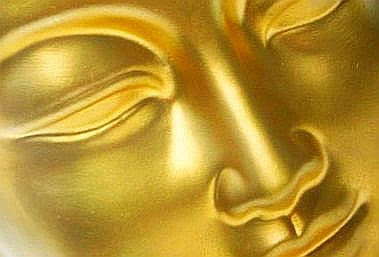
Merit (Sanskrit puṇya, Pāli puñña) is the concept of willing, performing, and accumulating wholesome, profitable karma in Buddhism.
Merit accumulates as a result of skillful actions -- physical deeds, verbal acts, and/or strictly mental intentions and views. This karma carries over to later in life and future lives. It rarely bears its results in a way that is clear to see.
Instead, it remains dormant, ripening when it finds opportunity. The workings of karma are very mysterious and nearly impossible to discern due to the complexity of their interaction. They can be modified, become defunct, or grow exponentially.
If they come to fruition at the time of passing from one existence to another, they set the entire tone for that life by acting as a "course" or corridor to fortunate planes of existence.
As hard as it is to believe sometimes, the human plane is a fortunate destination. There is hell on Earth, since this is a plane of mixed karma with mixed results, but it also a realm of extraordinary opportunity.
The Buddha pointed out that certain actions -- such as violating the Five Precepts -- are incapable of leading to happiness. This means that when such acts come to fruition, the results will be unwelcome, unpleasant, unwanted, and hard to bear.
It does not mean that one cannot experience happiness as a result of killing, stealing, sexual misconduct (bringing harm, hurt, or division), speaking falsely (bearing false witness, speaking harshly, divisively, or idly), or consuming intoxicants that lead to heedlessness. Many beings delight in such deeds.
But that is only because these deeds have NOT ripened, have not borne fruit, have not given their result.

Beauty, health, intelligence, longevity... are all the results of merit
When that happens, it is impossible that one will be happy about it. Of course, one is unlikely to make the connection between deed and result. Most beings join things by time: What I did just now is why I got what I just got. Certainly what we choose now opens us up to similar things from the past.
But when a child dies tragically or when a healthy person gets sick or when a "bad" things happen to authentically "good" people, (or when a country collectively experiences a massive earthquake), it is NOT because of proximate actions or their deeds in this life. It is because actions, often from very long ago, finally met with the opportunity to bear their fruit.
These actions are not their actions yet not another's. This is the inheritance of things formerly willed, performed, and accumulated. To imagine or insert an enduring soul, ego, or self is a mistake that leads to confusion.
This fact leads to great confusion, dejection, and a great loss of faith. We cease to believe that what we do/say/think matters. It does matter. Right view is the greatest treasure. It gives rise to right speech. It gives rise to right action (profitable karma).
What we think conditions what we say. What we say conditions what we do. What we do conditions habit. Our habits condition our character. Our character conditions our future. CONTINUED
































































































































































































































No comments:
Post a Comment